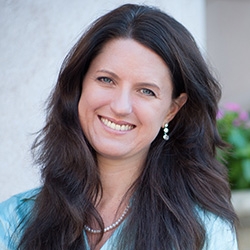

NVC Resources on Feelings
-
Here's a four step exercise applying a needs-based approach to effective goals, habits and New Year's Resolutions.
-
One clue we have trauma is when we respond in a way we don't want (eg. being reactive, self sabotaging, etc). Even when we have high level NVC skills our trauma-related mechanisms can activate, and we can lose access to well honed NVC skills. Read on for approaches that involve healing trauma, and approaches that involve managing the effects of trauma and preventing additional trauma.
-
Anger can result in violence or in a movement towards positive change. We can see this happen in the push for racial justice. When you perceive anger as a form of violence your nervous system becomes activated. Your perspective narrows and old conditioning can take over leading to overwhelm, defensiveness, hatred, or violence. Read on for four ways to to respond to our own or others' anger in a way that mobilizes desired change.
-
Let's look at the resources, awareness, and skills needed to ask for emotional attunement, celebration, relatedness, perspective, understanding, advice, and information. This includes expressing appreciation for what's supporting your needs, strengthening a sense of worthiness, and awareness of your reactivity and intention. Plus, making requests that are clear, specific, doable and creates a heart connection with others.
-
In the "obnoxious stage" we care for our needs in a way that doesn't respect others' needs. In the "emotional liberation" stage we fully care for others' needs as much as our own—while being free of fear, guilt, shame, or obligation. Often NVC training teaches us how to achieve the latter stage without the former. For greater compassion we can be more rigorous in how we talk about “responsibility", impacts and interdependence.
-
Codependency occurs when others' behavior affects us in unhealthy ways and we get obsessed with controlling their behavior. For example, we may focus on other's needs while neglect what matters to us, and resent it. Or we may depend on others to rescue us from results of our actions. Or we may fix or rescue others' neglected responsibilities. Or we may make others responsible for our needs. Instead, notice your needs, what you can('t) change, and your priorities.
-
Research shows that couples with a secure bond experience arguments that are shorter, lower in intensity, and easier to recover from. Building and keeping a secure bond with your partner requires mindfulness and consistency: respond to what’s needed or supportive in a given moment; give them your full attention and affection in a spacious greeting; conveying care, consideration, and that they matter and are seen.
-
Yvette Erasmus shares practices to help us develop a regulated nervous system. We all get hijacked and triggered at some point. When that happens we can travel a blame and shame road or we can greet ourselves with graciousness and self compassion.
-
An anchor is something you turn your attention toward in order to interrupt reactivity and access a non-reactive, expansive perspective. Though it doesn't make the reactivity go away, it allow you the internal space to choose to not behave from reactivity. In this practice exercise learn more about anchors, plus how to create and use them.
-
Empathy alone can be unreliable in guiding compassionate action. As seen in historical events, military training, personal anecdotes, and scientific experiments, empathy alone may not prevent people from harming others. A sense of duty or obedience, often instilled through fear of punishment and shame, might inhibit empathic action. The antidote may be to fostering empathy without resorting to control, shame, or punishment.

Quick Links
Subscription Preferences
Stay In Touch!
Looking for ways to keep up with NVC Academy news, get special offers, free resources, or words of inspiration? Here are five ways to stay engaged:










